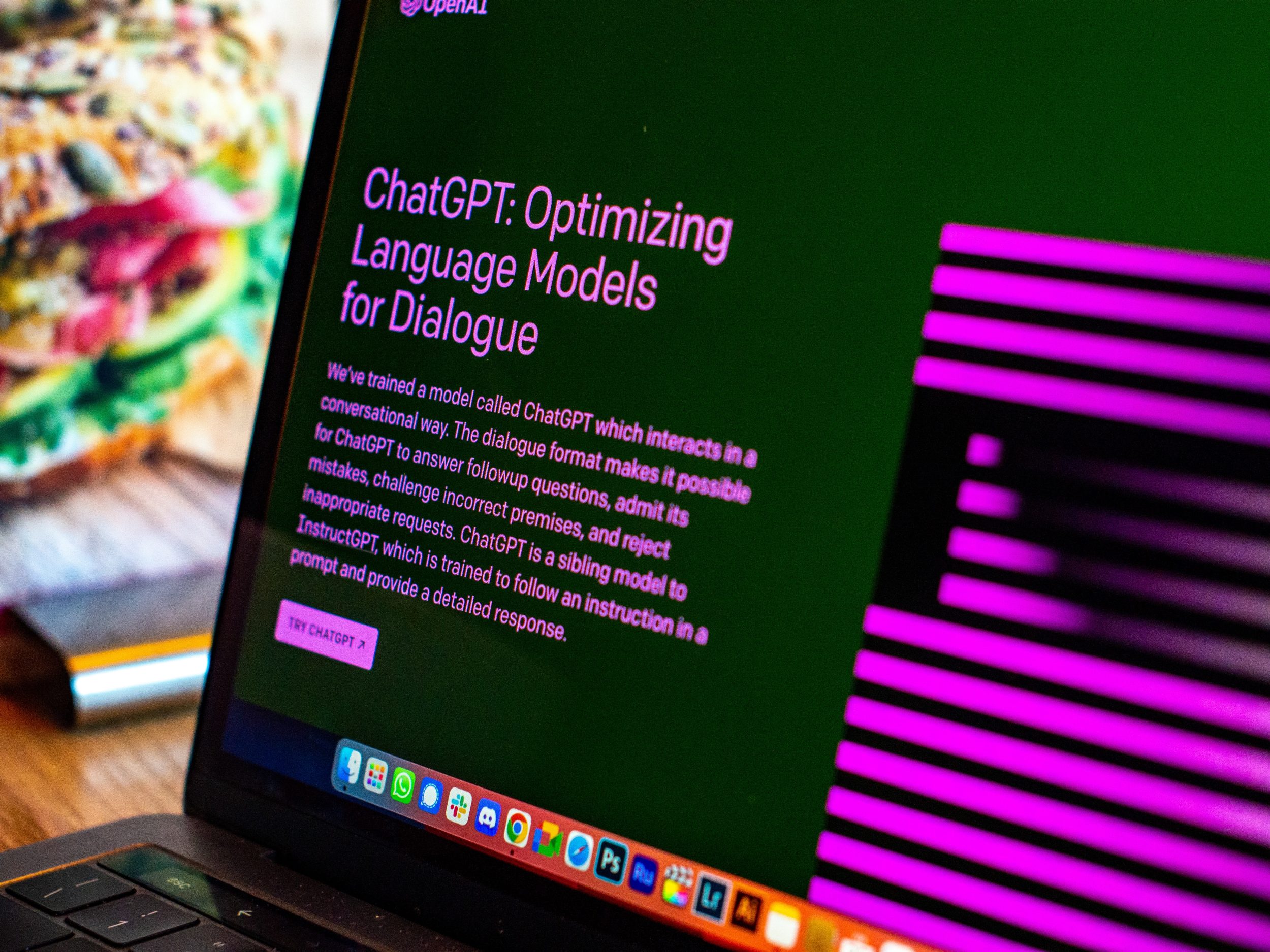 Kojo Apeagyei, a digital strategy consultant and student on LSE’s MSc Media and Communications (Data and Society) programme, writes here about how the concept of Afrofuturism can be used to think constructively about improving the design of AI systems.
Kojo Apeagyei, a digital strategy consultant and student on LSE’s MSc Media and Communications (Data and Society) programme, writes here about how the concept of Afrofuturism can be used to think constructively about improving the design of AI systems.
In recent years, the field of Artificial Intelligence (AI) has witnessed significant advancements, particularly in the field of generative AI – marked by the launch of OpenAI’s ChatGPT in 2022, a natural language processing chatbot which allows users to engage in human-like conversations. However, the social and cultural implications of these technologies do not impact everyone in the same way. Technology is far from neutral and algorithms are coded instructions that inherently embody the values and decisions encoded within them.
The values embedded in these technologies are designed to align with corporate interests, such as maximising profits accrued via ad revenue by maximising user attention. Popular applications such as Twitter, Netflix, Spotify, and even supermarket apps utilise complex algorithms to curate personalised content to retain users on their platforms for as long as possible. Unchecked power wielded by corporate entities raises concerns about who controls our data and for what purposes. In the context of Africa, the majority of these global corporations are not based on the continent. The vast quantities of data produced by people on the continent are exported outside of it, with minimal oversight from African nations.
Conceptual frameworks which bring the lived experience of African communities into the conversation on AI’s impact on the continent are vital, and this is where Afrofuturism can offer some insight. Despite being associated with arts and culture, its core tenets stand to challenge unequal power dynamics enshrined by AI technologies and contribute to creating a more equitable world. This post will explore how community involvement and radical imagination can be applied to AI design and deployment, to create more trustworthy systems.
What is Afrofuturism?
Afrofuturism finds its roots in cultural aesthetics, built up by the collective efforts of writers, musicians, artists, and curators. Afrofuturist works explore the experience, agency and identity of Black people, combining art, science, and technology to imagine alternative futures for liberation in difficult circumstances. One notable Afrofuturist figure is Jazz legend Sun Ra – widely credited as being the father of Afrofuturism, who spearheaded a wave of spacey atmospheric sounds as a means to mentally transport African-Americans away from the struggles of quotidian segregation. Afrofuturism is primarily known for its aesthetics, but underpinning this is a radical approach to considering the relationship between being Black in the present, and future. Florence Okoye is the founder of AfroFutures_UK, a UK-based collective of artists, hackers and activists, reimagining the future Black experience. In an interview with a software developer, Olu Niyi-Awosusi, Florence describes Afrofuturism as a “framework for activism and imagining new technologies”.
It is from this jumping point that we can consider the utility of a perspective like Afrofuturism, as a mechanism for centring the experiences of Black people, in the techno-future. It offers alternative ways to consider not only how we might challenge the power dynamics embedded in technology like AI, but how we might engage with that technology in meaningful, responsible, and ethical ways.
Community perspectives across time
Afrofuturist texts often share a reverence for time, reflecting on the past – via elders, ancestors, or trauma and using this knowledge to project dreams and ideals into a better future. This dyad of reflection/projection is found within Octavia Butler’s Parable series, embodied by the main character Lauren Olamina and her daughter Larkin, who narrate the story via Lauren’s diary entries, and even in Marvel’s Black Panther film, where characters from the African techno-utopia, Wakanda, commune with ancestors on key decisions. There is a constant intergenerational dialogue on how change is impacting the community. In the context of AI, it can serve as a practice reminding us to constantly evaluate the impact of AI on local communities, and learn from the historical and cultural contexts in which AI systems are deployed.
One way to achieve this in the present is by implementing evaluative systems where local communities and users can provide feedback on how an AI system is impacting their lives. This goes beyond occasional surveys and includes methods like focus groups and town halls – and ideally, the results, and interpretation, of these engagements, would be made public. However, striking a balance can be challenging, as businesses tend to shield the inner workings of their systems.
Another more technical method is for AI developers to open-source their AI models. Simply put, open-sourcing AI is where a developer shares the code underpinning their system with the world, allowing others to use, modify or distribute that code. Wikipedia is arguably the most well-known application of open-source. Systems like Firefox and Linux are also examples of open-source software. By open-sourcing AI, people from around the world can work on projects together and spot security flaws in code which may go unnoticed in closed-source systems. It’s a more collaborative and cost-effective experience than the alternatives, with communities varying from a local to a global level. However, it is also not perfect and can lend itself to other criticism such as developers being expected to maintain the support of popular open-source projects without (fair) compensation.
Afrofuturism values community interdependence and belonging, so in the context of AI design, this means involving diverse communities and stakeholders in the design process. It means ensuring engineers have a degree of reflexivity about their work – that they’re listening, learning, and adapting. By centring the voices and needs of diverse communities, we can create AI systems that are more inclusive, equitable, and beneficial to all. Systems which listen and respond. As it pertains to high-risk applications e.g., health, legal, or financial fields where unfair decisions can have life-altering ramifications, this should be non-negotiable.
Radical imagination
Afrofuturism advocates for radical imagination and problem-solving. It challenges us to envision worlds where existing problems—particularly those impacting Black communities—have been solved or never existed in the first place. Applied to AI design, this approach prompts us to consider how AI can contribute not only to solving real-world challenges and effecting positive change but also to addressing the root causes of those problems, which can vary from one community to another. For example, for a farmer, rather than an AI solution focused solely on inventory management to reduce waste, it might be more pertinent to develop an AI solution that advises on the best time to grow foods according to local demand in the past and present – eliminating waste. By transcending the limitations of the present, we can design AI systems that have a transformative impact on society.
Leveraging Afrofuturism for AI Design
Integrating the principles of Afrofuturism into AI design holds promise for creating AI systems that are more cognisant of their biases, responsive to diverse perspectives, and geared towards positive societal impact. Inclusive design practices, radical imagination, continuous learning, and community involvement emerge as crucial elements in shaping the future of AI in a more ethical and responsible manner. While Afrofuturism offers invaluable insights for enhancing AI design, translating these normative suggestions into actionable strategies is challenging. Organisations and engineers must move beyond conceptual acknowledgement and embark on practically implementing these principles in their everyday practices. This requires a fundamental shift towards ingraining Afrofuturist principles into the very fabric of AI development processes, rather than treating them as superficial add-ons. Embracing such a holistic approach will not only ensure the ethical advancement of generative AI but also foster innovation that genuinely serves the needs and aspirations of diverse communities.
This post represents the views of the author and not the position of the Media@LSE blog, nor of the London School of Economics and Political Science.
Featured image from RawPixel .





